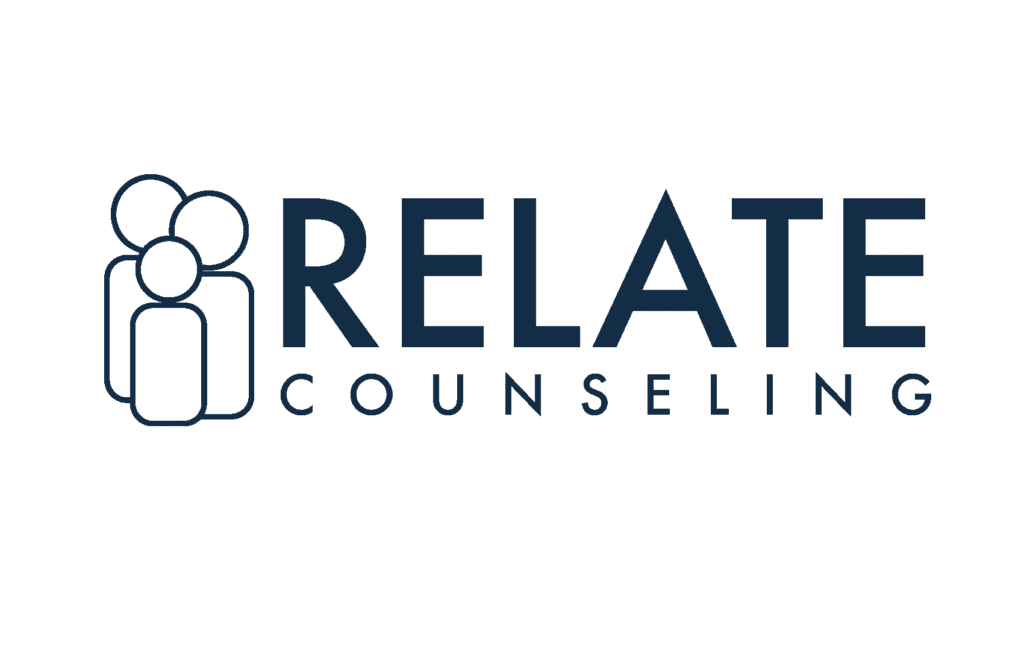Emotionally Focused Therapy (EFT) is a type of counseling designed to help individuals and couples manage their emotions and strengthen their relationships. It was developed in the 1980s by Dr. Sue Johnson and Dr. Les Greenberg. The therapy focuses on understanding and changing emotional responses, especially within relationships, by addressing the deeper emotions behind behavior patterns.
How Does Emotionally-Focused Therapy Work?
According to Psychiatry Online, emotional-focused therapy helps people recognize and work through their emotions. Individuals often struggle to communicate their feelings, which can cause misunderstandings or tension in relationships. EFT aims to create a safe space where people can openly discuss their emotions.
Using EFT, therapists guide clients to explore their feelings and determine the root causes of their emotional reactions. Understanding these emotions allows clients to express themselves better, leading to more meaningful conversations and stronger connections.
Key Components of Emotional-Focused Therapy
EFT is based on the idea that emotions play a critical role in shaping relationships. It emphasizes key elements:
Emotional Awareness
One of the first goals of Emotional-Focused Therapy is to help people become more aware of their emotions. Often, people don’t fully understand what they’re feeling or why. In EFT, therapists work with individuals and couples to identify the emotions driving their actions and reactions.
For example, someone might feel angry during a disagreement, but underneath that anger, they may feel hurt or scared. EFT helps uncover these deeper emotions so that the person can communicate them more clearly. Emotional awareness is crucial because it allows people to respond to situations more thoughtfully and intentionally rather than simply reacting out of habit or frustration.
Identifying Negative Patterns
Emotional-focused therapy helps people identify negative behavior patterns that may damage their relationships. These patterns often involve repeated cycles of emotional reactions that keep people stuck in conflict or misunderstanding. For example, a couple might fall into a cycle where one partner feels ignored and responds angrily while the other partner withdraws to avoid conflict, causing further tension.
EFT focuses on breaking these negative patterns by helping people see how their emotional responses contribute to the cycle.
Building Emotional Safety
A core component of Emotional-Focused Therapy is creating a sense of emotional safety. People need to feel secure and accepted in their relationships to express their true feelings. When emotional safety is present, individuals feel comfortable being vulnerable and sharing their deepest emotions without fear of rejection or judgment.
EFT therapists focus on helping clients build emotional safety by teaching them how to listen to each other’s feelings and respond with empathy. It encourages individuals to open up and communicate more effectively by fostering a supportive and non-judgmental environment.
Reframing Emotional Responses
Reframing emotional responses is another key aspect of EFT. People often respond to emotions in ways that don’t fully reflect what they’re feeling. For example, someone might lash out in anger when feeling sad or lonely. EFT helps people reframe their emotional responses to express their feelings more clearly and constructively.
This reframing process allows individuals to break free from old habits and find new ways to communicate emotions. For example, instead of reacting with anger when feeling hurt, someone might learn to say, “I feel upset because I need more support.” Expressing emotions more clearly and directly can help individuals build stronger emotional connections and reduce misunderstandings.
Strengthening Emotional Bonds
The ultimate goal of EFT is to strengthen emotional bonds between individuals. It is achieved by helping people understand their own emotions and the emotions of those around them.
Strengthening emotional bonds involves creating a sense of trust, openness, and vulnerability. EFT helps individuals build stronger relationships by encouraging them to share their feelings more openly and respond to each other with empathy and understanding.
Emotional Attachment and Connection
EFT is rooted in attachment theory, which suggests humans have a fundamental need for emotional connection. When this need is met, people feel more secure, loved, and supported in their relationships. When emotional attachment is lacking, people may feel disconnected, anxious, or rejected.
EFT focuses on helping individuals and couples build stronger emotional attachments by addressing the emotional needs that may not be getting met. Emotional-focused therapy helps people create more fulfilling and connected relationships by working through these attachment issues.
Working Through Emotional Blocks
People often have emotional blocks that prevent them from fully engaging in relationships. These blocks may come from past experiences, such as trauma, loss, or rejection, that make it difficult to open up emotionally. Emotional-focused therapy helps individuals work through these blocks to build healthier emotional connections.
Therapists in EFT create a supportive environment where clients can explore and process their emotions without judgment.
Benefits of Emotional-Focused Therapy
Emotionally Focused Therapy offers many benefits for individuals and couples dealing with emotional issues. Here are some of the key advantages:
Improved Communication
EFT helps people become more open about their emotions, leading to better communication. When individuals learn to express their feelings clearly, misunderstandings and conflicts are reduced.
Stronger Relationships
Emotional-focused therapy can help strengthen bonds between partners, friends, or family members by addressing emotional issues. This leads to deeper, more supportive relationships.
Healing Emotional Wounds
EFT can help people heal from past emotional wounds by working through their feelings in a safe and supportive environment. This healing process can improve mental well-being and overall happiness.
Better Emotional Regulation
Individuals who struggle with managing their emotions can benefit from EFT, as it teaches techniques for recognizing and controlling feelings. This leads to more balanced and positive emotional responses.
Who Can Benefit from Emotional-Focused Therapy?
Emotional-focused therapy is suitable for individuals and couples dealing with emotional challenges. It is beneficial for people experiencing relationship difficulties, such as:
Couples
EFT is commonly used in couples therapy to address conflicts and improve communication. By helping partners understand each other’s emotions, EFT can lead to more harmonious and fulfilling relationships.
Families
Family members who struggle to connect emotionally can benefit from EFT. The therapy can help them better understand each other’s feelings, reducing tension and improving family dynamics.
Individuals
Even if someone isn’t in a relationship, EFT can help individuals work through personal emotional issues, such as anxiety, depression, or trauma.
The Process of Emotional-Focused Therapy
Emotional-focused therapy usually involves several stages that clients go through with their therapist:
Identifying Emotional Issues
The first step in EFT is identifying the emotional issues causing problems in the individual or relationship. This may involve discussing past experiences or struggles that trigger negative emotional responses.
Exploring Underlying Emotions
After identifying the issues, the therapist helps clients explore their deeper emotions. Often, the emotions people show on the surface (like anger) cover up more vulnerable feelings (like sadness or fear). EFT helps individuals uncover these hidden emotions.
Reframing Emotional Responses
Once clients understand their emotions better, they work on reframing their emotional responses. This involves learning new ways to respond to emotional triggers that promote healthier and more positive outcomes.
Building Emotional Connection
In the final stages, EFT focuses on rebuilding emotional connections between individuals or partners. By expressing their emotions openly and learning to support each other, clients can strengthen their bonds and create more secure relationships.
Emotionally Focused Therapy vs. Other Therapies
EFT differs from other forms of therapy in its focus on emotions as the core of human behavior and relationships. While cognitive-behavioral therapy (CBT) focuses on changing thoughts and behaviors, EFT is primarily concerned with helping clients understand and express their emotions.
EFT also strongly emphasizes attachment theory, which suggests that humans have a fundamental need to feel emotionally connected to others. Unlike other therapies, which may focus on problem-solving or skill-building, EFT aims to create deeper emotional bonds between individuals.
How to Find an Emotional-Focused Therapy Practitioner
If you think emotional-focused therapy might be right for you, finding a trained EFT therapist is important. Many therapists specialize in EFT, and you can often find them through online directories or by asking for recommendations from your doctor or mental health provider.
Look for a therapist who is experienced in using EFT and understands emotional dynamics in relationships. Many EFT therapists also offer couples or family counseling so that they can address relationship issues in a broader context.
Conclusion
Emotional-focused therapy is a powerful tool for improving emotional well-being and strengthening relationships.
Helping people understand their emotions and connect more deeply with others can lead to lasting positive changes in individual and relationship health.
EFT creates a safe space for partners to explore their feelings, fostering trust and communication.
If you’ve found the concept of emotional-focused therapy intriguing and are considering how it could positively impact your personal or relationship well-being, Relate Counseling is here to guide you every step.
We offer specialized services in marriage counseling, couples therapy, and individual support, addressing a range of issues from anxiety and depression to stress and trauma, all through the lens of enhancing and healing relationships.
Our team of compassionate and experienced therapists is dedicated to helping you find the meaningful and secure connections you deserve.
Don’t wait to create the change you seek.
Explore our services at Relate Counseling, and contact us today to schedule your appointment.




